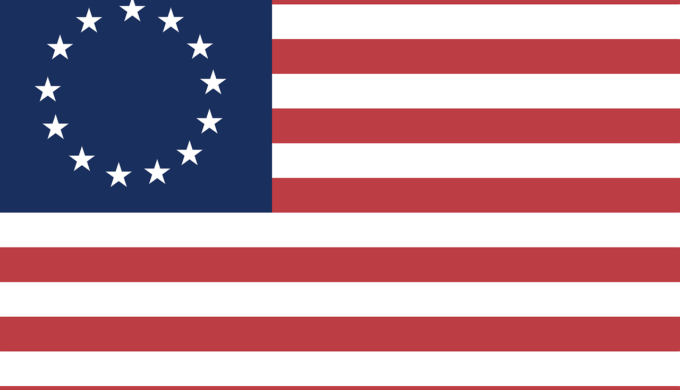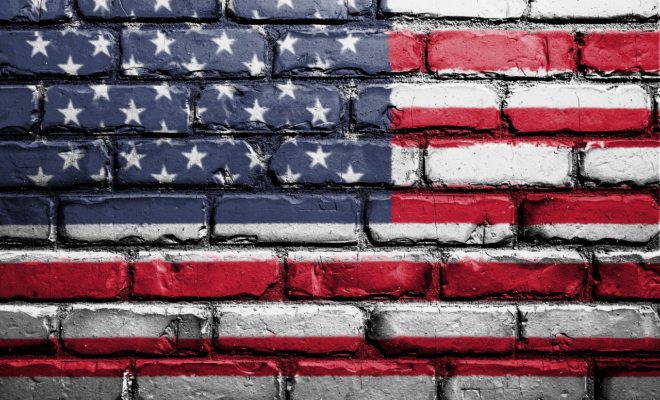While Independence Day is a wonderful opportunity to showcase your patriotic pride, it can also be a time to dust off those history books and revisit the early days of our great nation. Below are five little-known Independence Day facts about a few key individuals in our country’s past.
History
5 Facts for the Patriot in All of Us in Time for Independence Day
1. George Washington Didn’t Have a Great Start to His Military Career.

Photo: Pixabay
Most Americans recognize the name of our country’s first president and legendary general. However, a little known tidbit is the fact that his military career got off to a rocky start. A young Washington joined the Virginia militia several years before the Revolutionary War. At the time, France was attempting to move in on established English territory. Washington was sent to what is now considered Pennsylvania to protect new trade lands recently gained by the crown.
To make a long story short, the inexperienced colonel attacked a small French force. During the skirmish, a French ensign was killed. The British troops retreated and attempted to build a place of refuge for themselves in the face of expected retaliation. However, several days later they were forced to surrender as the amount of enemy troops far outnumbered their own. Terms of surrender were drawn up that included an admission of guilt for the death of the French party’s leader. The document was written in French, a language not spoken by Washington. His signature, in addition to the fighting between the two parties, ignited a war that would last seven years and send Britain into financial straits, thus influencing the many taxes levied on American colonists several years.
2. The Declaration of Independence was Not Accepted on July 4th.

Photo: Pixabay
On July 2, 1776, the state of Virginia motioned to break all ties with Great Britain. After making changes to the declaration, it was accepted by 12 of the original 13 colonies on July 4th. New York, a stronghold for loyalists to the crown, did not adopt the declaration until several weeks later on July 19th. John Hancock, Benjamin Franklin, and several other founding fathers signed the official Declaration of Independence on August 2nd.
3. Paul Revere was Captured During His Famous Midnight Ride.

Photo: Facebook/Old North Church and Historic Site
The Bostonian silversmith’s ride was made famous by Henry Wadsworth Longfellow, even though the poet’s piece contained several inaccuracies. Though Revere did play a vital role in relaying information regarding the landing of British troops on colonial soil, he was not the only messenger. Additionally, he did not make it through his ride untouched. After reaching the city of Lexington, Massachusetts, Revere met with two fellow messengers and decided to continue on their mission. On the way, two of the men were detained and attempted to escape. One did so successfully, but Revere was unable to get away. He was held prisoner and questioned before being released. However, the British soldiers confiscated the horse he had borrowed from a fellow patriot, leaving him no choice but to walk back to Lexington.
4. Ben Franklin had a Loyalist Son.

Photo: Pixabay
Referred to as the “First American,” Franklin was a fierce supporter of colonial independence. He even served for some time as an ambassador to France for the young nation. However, it does not appear that all of Franklin’s children shared their father’s patriotic views. His son, William Franklin, staunchly opposed everything his father stood for. William had been appointed governor of New Jersey by the British crown, therefore his allegiance was to King George III, the ruler of the British Empire. Apparently, father and son never reconciled their differences as William left the colonies when a rebel victory appeared imminent.
5. The Revolutionary War was Not Limited to North America.

Photo: Pixabay
While the majority of history books like to focus on the battles that took place on North American soil, the truth is the British Empire stretched all across the globe. The American colonists’ declaration of independence ignited a firestorm of rebellion throughout Britain’s provinces. Skirmishes occurred in India, the Bahamas, parts of Europe, and the Caribbean. Because Britain was forced to address these issues by sending military support and funding, the colonists were able to capitalize on the leveled playing-field against what would have been a much larger, and better supported, fighting force.
While everyone can enjoy fireworks and sporting their favorite red, white, and blue attire on Independence Day, it is important to remember how far this great country has come since its humble beginnings. What began as an ideal in the minds of a bunch of rag-tag rebels has become one of the greatest countries in the world. Happy Independence Day!
Sources:


